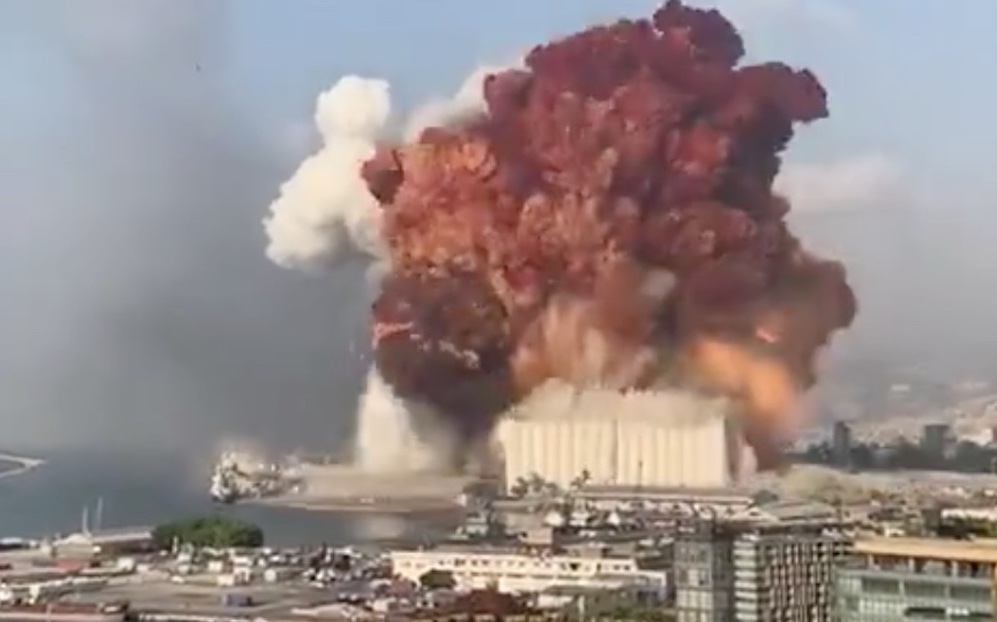Hello everybody and welcome back to another edition of Global History Hub! I'll be your host, Mr. Nations, your tour guide to this massive world we all call home! On today's edition of Misfortunate Monday, we'll be taking a look at the very recent, very deadly explosion in Beirut. Well, what are we waiting for? Let's dive straight into it!
On August 4th, 2020, a large amount of ammonium nitrate stored at the port of Beirut, the capital of Lebanon, exploded. The explosion resulted in at least 202 deaths, 6,500 injuries, 300,000 homeless people, and around $15 billion in damages. The cause of the explosion is unknown and is currently under investigation.
The explosion was so powerful that it was felt in Turkey, Syria, Israel, Palestine, and even parts of Europe were rocked by the unfathomably large explosion. It was registered as a 3.3 on the seismic scale and is now considered one of the most powerful non-nuclear explosions in history. As a result, the Lebanese government declared a two-week state of emergency.
The aftermath was almost as destructive as the explosion itself. The protests that spawned all throughout the country caused the Prime Minister of Lebanon and the Lebanese cabinet to resign due to mounting political pressure that was only accelerated by the explosion. Although a new Prime Minister was elected, he failed to change the government and eventually stepped down from the position.
Fast Facts:
- Lebanon already had major political and economic problems before the explosion.
- The COVID-19 pandemic had overwhelmed many of the country's hospitals, making it hard to treat the injured.
- During the initial fire that set off the explosion, only ten men were dispatched to fight it.

No comments:
Post a Comment
Please be respectful. Think to yourself, "Would I say this to a child?"